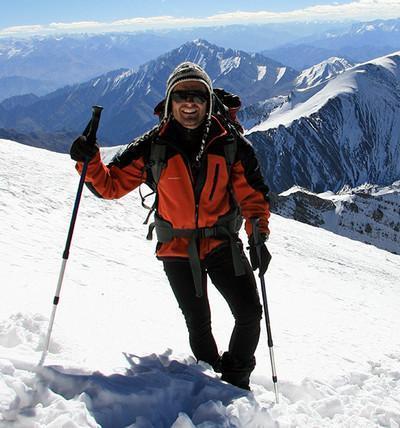If you are planning on skiing when you're pregnant or hitting the slopes, you might be wondering if it's safe to do so. First, it's important to remember to slow down. Avoid fatty foods and caffeine. Stay well hydrated, and listen to your body. Pregnancy can cause your body to become overheated, so be sure to take it easy.
Avoid Fatty Foods
If you are pregnant and planning to go skiing, you need to avoid fatty foods. You should also avoid caffeine, and avoid open skiing areas and skiing at night. Consult your doctor for advice. You can also find helpful tips online. Pregnant women should always consult a physician before going skiing.
During pregnancy, it is important to avoid food that may cause complications or harm the unborn baby. This includes uncooked or raw meat, unpasteurized dairy products, and fish that contains listeria. You should also limit caffeine and foods with added sugar. It's difficult for a pregnant woman to get all the nutrients she needs, so it's especially important to avoid these.
Avoid Caffeine
Avoiding caffeine consumption during pregnancy is important for the health of the unborn child. Studies have shown that excessive intake of caffeine during pregnancy can lead to birth defects, low birth weight, and other reproductive problems. While there is no concrete evidence to support these findings in humans, high consumption of caffeine during pregnancy may delay conception and result in birth defects or low birth weight.
Caffeine is one of the most common stimulants. It helps improve energy levels, helps focus, and can relieve migraines, but health authorities recommend avoiding it during pregnancy.
Avoid Dehydration
Staying hydrated is important for everyone, but especially during pregnancy. A woman's body contains 60 percent water and needs to drink plenty of water to maintain the baby's health. Water helps with digestion, nutrient absorption, body temperature regulation, and even cushions the joints. Dehydration can lead to severe complications for both mother and child.
To avoid dehydration, drink plenty of water before and during your activity. Avoid prolonged exposure to the sun. This will increase your chances of heat-related illness and may cause dehydration. Also, if you have gestational hypertension, be aware that your blood pressure will be higher at higher altitudes. When skiing during pregnancy, do not think of yourself as a competitor; instead, focus on the benefits of the exercise.
Avoid Falling
If you are planning to go skiing while pregnant, there are several precautions that you need to take. The first one is to listen to your body. You should avoid heavy and icy snow, and also discuss your plans with your doctor. In addition, women who have had a previous history of pregnancy complications should avoid skiing during pregnancy.
You should also avoid falling when skiing while pregnant. Although skiing is generally safe for pregnant women, high-altitude skiing carries a higher risk of falling than other forms of exercise. High-altitude skiing can reduce the blood flow to the baby, which can be harmful to a growing fetus. A fall can also cause serious injury to the mother and fetus.
Avoid Collisions With People or Objects
When skiing or snowboarding during pregnancy, you must consider the risks and benefits. The risk of injury is greatest in cases where you collide with someone or an object. The baby is tiny inside the womb, and falling can be devastating to the mother and fetus. If you decide to go skiing during pregnancy, be sure to follow safety precautions and wear appropriate ski clothing.
As a general rule, women are safest when they are in the second trimester. They may feel more confident skiing during this time. However, women who are in their third or fourth trimesters should be particularly cautious. Because the center of gravity of the pregnant woman will be shifting, she is more vulnerable to losing her balance. Other risks that are a danger to pregnant women include roller coasters, bumper cars, and water slides. These types of rides are dangerous because of their bouncy movements and forceful impact with water.
Listen to Your Body
If you are pregnant, you need to listen to your body when skiing and snowboarding. The biggest risk of skiing and snowboarding while pregnant is abdominal trauma. To minimize this risk, take frequent rest breaks and pay attention to your body's signals. If you are unsure, consult a doctor. If your doctor advises you to ski or snowboard, do so only if you feel up to it. Also, you should avoid heavy snow or icy conditions.
When skiing during pregnancy, you should listen to your body's warnings and take your time. While competitive athletes often push through the pain, you should not do so during pregnancy. Your body is trying to protect itself from the high demands of the sport, so be gentle. There's always more activities to try in ski resort.
Avoid Falling on Your Abdomen
If you're planning to go skiing during your pregnancy, you should keep several things in mind. First, you need to acclimatise. Skiing at a high altitude can be dangerous for pregnant women because the air is depleted of oxygen. It can also cause breathing irregularities and cramping. To avoid this, try skiing at a lower altitude. This will be safer for you and your unborn child.
Another important aspect of pregnancy is the risk of miscarriage. This is one of the least predictable risks. Because of this, you should think carefully about what to do to prevent this from happening. In addition to that, you should also consider the risks of injuries. The changes in your body, your center of gravity, and sense of balance will make you more prone to accidents and injuries.





